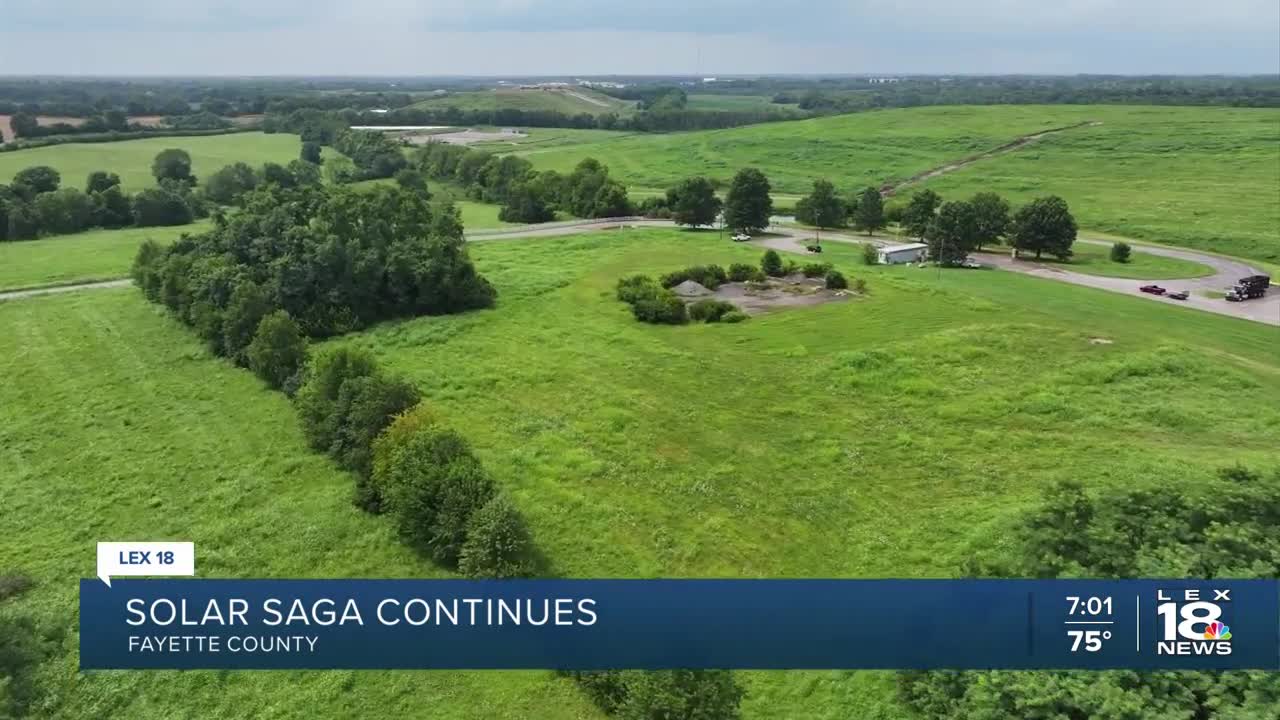FAYETTE COUNTY, Ky. (LEX 18) — Lexington's City Council is moving forward with regulations that would keep industrial-scale solar operations off Fayette County's farmland, as an ongoing debate continues over where renewable energy projects should be located.
The proposed solar panel zoning ordinance amendments recently advanced through the council process, though a final vote has not yet been taken. The regulations would restrict large-scale solar farms in agricultural zones, potentially blocking projects like Silicon Ranch's proposed 800-acre solar farm in the Haley Road area.
Robert James, president of Fayette County Farm Bureau, has been advocating for his organization's 570 members throughout the process. He said the current lack of solar-specific zoning regulations create uncertainty for the future of Fayette County farmland.
"Previously, there was no zoning ordinance related to solar industries in Fayette County. It wasn't something anyone had thought about here," James said.
The debate has intensified as farms across the country consider swapping crops and livestock for industrial-scale solar installations. James argues that allowing these developments in rural zones would fundamentally change the county's agricultural character.
"It's an industrial-use, producing electricity at that scale, so allowing these developments in the rural zone is basically an expansion of the urban service boundary which has helped us maintain our agricultural sector since 1958," James said.
Silicon Ranch, the Nashville-based company behind the proposed Haley Road project, promotes agricultural and solar collaboration on its website, along with economic benefits for communities. However, the company's plans may not move forward if the text amendment passes.
In a statement opposing the project, Fayette County Farm Bureau expressed concerns about permanent damage to productive farmland.
"The benefits of this proposed facility are ultimately ephemeral, while the costs to our Fayette County farmland are permanent. We farm in the Inner Bluegrass region of the state with some of the most fertile and productive soils in the country. The infrastructure needed to support the panel arrays will permanently alter and destroy the productive soils beneath them," the organization stated.
James emphasized that Farm Bureau supports solar energy, including adding panels to existing buildings and brownfields. The organization backs the large-scale solar installation proposed at the former Haley Pike Landfill.
The root of the disagreement centers on transforming active farmland into a different use.
"Really, there's a lot of common ground between us. Where we differ is our love of the land and maybe our understanding of what it takes to keep that land productive," James said.
James argues that large-scale solar installations could harm soil quality over time, potentially altering Fayette County's agricultural landscape permanently.
"We're very mindful about renewable energy, climate change and all that, we just don't wanna see the factory floor where we make our lives developed to where we can't use it anymore," James said.
The Solar Panel Zoning Ordinance Text Amendment will have its second reading and vote on Sept. 11.





